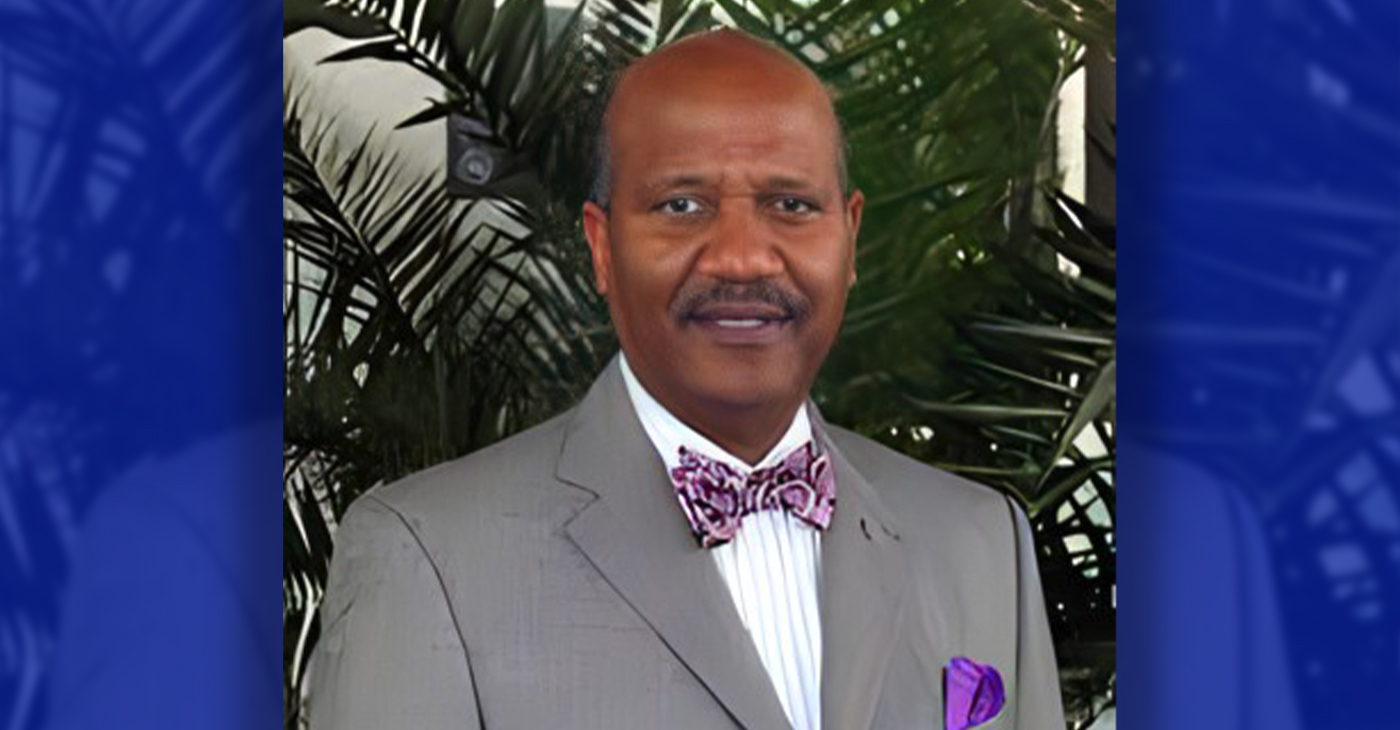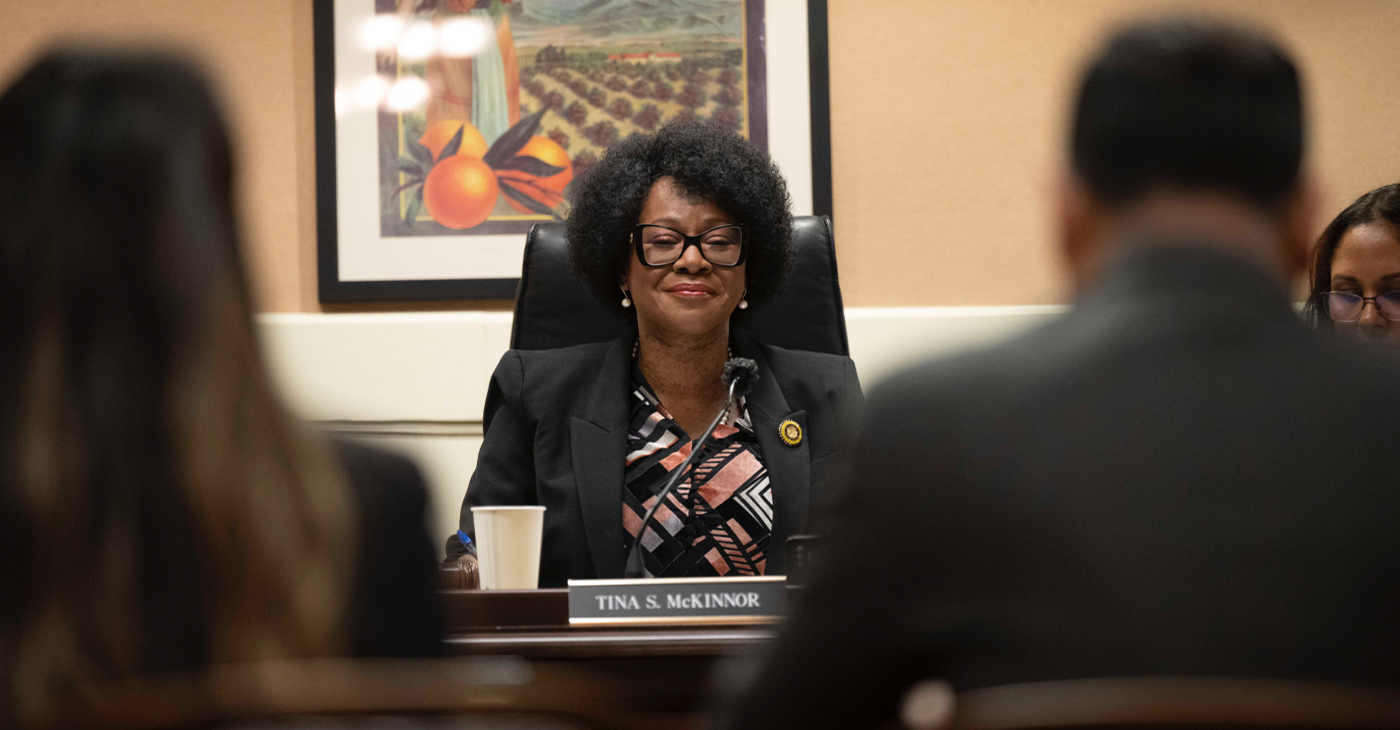California Black Media
Opinion: How We Can Protect Our Communities from COVID After the Pandemic
As pastor of the First African Methodist Episcopal Church of Los Angeles (FAME), the oldest African American church in the city, I have always strived to lead my members to health and prosperity. But nothing could have prepared us for the challenges of the pandemic, which affected every aspect of our church — from how we conducted services to how we communed with people. But the church leadership and I knew it was our calling to take on COVID-19 and protect our flock.

By Rev. Edgar Boyd
California Black Media
Every Sunday, I look out at the faces of my congregation, and I am grateful that we have overcome the many challenges we have faced over the past few years. At the same time, I am also reminded of all the beautiful souls we have lost to COVID-19. The pandemic has upended the lives of many in our community, and the residual effects are still being felt.
As pastor of the First African Methodist Episcopal Church of Los Angeles (FAME), the oldest African American church in the city, I have always strived to lead my members to health and prosperity.
But nothing could have prepared us for the challenges of the pandemic, which affected every aspect of our church — from how we conducted services to how we communed with people.
But the church leadership and I knew it was our calling to take on COVID-19 and protect our flock. Over the years, we have continued to learn and evolve our approaches to address the overall health, social and educational needs of our parishioners and the larger South LA community.
Although we have made it through the most difficult period of the pandemic, COVID-19 remains a threat to our loved ones, especially Black communities in California who have been disproportionately impacted by the virus.
According to the Los Angeles County Public Health Department, Black residents in Los Angeles County were twice as likely to be hospitalized with COVID-19 as white residents, and one-and-a-half times more likely to die from the virus. These disparities are unacceptable, and we must work to reduce them.
Now, with COVID-19 vaccines and treatments widely available, we have the tools we need to protect ourselves and our loved ones from serious illnesses and deaths. We can return to doing the things and seeing the people we love.
Our initial focus was to prevent COVID-19 exposure, but sometimes this was not always possible. Now, we are shifting priorities to making sure our members know what to do if they test positive.
Although they are free, widely available, and effective, COVID-19 medications have been relatively unknown within my community. We are starting to integrate initiatives to raise awareness around COVID-19 medications into our other long-standing programs to support our community members who test positive.
Scientific evidence shows that when COVID-19 medications are taken within the first week of testing positive, they can prevent serious illness, hospitalization, and death by half or more. Timing is crucial as most of the medications must be taken within the first five days to be effective.
To address these issues, we have had to overcome many barriers, one of the biggest being my community’s mistrust of the medical system due to generations of racism and mistreatment. We have worked hard to educate about COVID-19 safety and rebuild trust in the medical system.
We have also partnered with other trusted entities and organizations like the University of Southern California and Jewish congregations to share resources, materials, and knowledge to fight the COVID-19 pandemic. We have made it a priority to educate those close to us about the resources and tools available to stay safe and protect ourselves, including vaccines and treatments.
The good news is that we know what works. Our church is hosting teachable Thursdays that highlight influential medical professionals to discuss vaccination benefits, side effects, and other important information about COVID-19. Additionally, we opened a wellness center to create a welcoming and trusting environment for those in the community, operated by community members to provide necessary services that address COVID-19, such as vaccinations, testing, and education around COVID-19 medications.
We invite and welcome all Angelenos who have questions or need support to come and access these services.
Overcoming challenges that Black communities here in Los Angeles and throughout California have faced due to COVID-19 has not been easy. However, through hard work, listening to our community, and the power of prayer, we have found ways to win over the virus. After all, prayers are powerful, but even more so when paired with COVID-19 medications.
To learn more about COVID-19 medications, visit YouCanBeatIt.org.
About the Author
The Rev. Edgar Boyd is pastor of the First African Methodist Episcopal Church of Los Angeles (FAME), the oldest African American church in the city. Under his leadership, FAME is working to address the health, social and educational needs of parishioners and the surrounding community.
Activism
Oakland Post: Week of April 24 – 30, 2024
The printed Weekly Edition of the Oakland Post: Week of April 24 – 30, 2024

To enlarge your view of this issue, use the slider, magnifying glass icon or full page icon in the lower right corner of the browser window. ![]()
Business
Black Business Summit Focuses on Equity, Access and Data
The California African American Chamber of Commerce hosted its second annual “State of the California African American Economy Summit,” with the aim of bolstering Black economic influence through education and fellowship. Held Jan. 24 to Jan. 25 at the Westin Los Angeles Airport Hotel, the convention brought together some of the most influential Black business leaders, policy makers and economic thinkers in the state. The discussions focused on a wide range of economic topics pertinent to California’s African American business community, including policy, government contracts, and equity, and more.

By Solomon O. Smith, California Black Media
The California African American Chamber of Commerce hosted its second annual “State of the California African American Economy Summit,” with the aim of bolstering Black economic influence through education and fellowship.
Held Jan. 24 to Jan. 25 at the Westin Los Angeles Airport Hotel, the convention brought together some of the most influential Black business leaders, policy makers and economic thinkers in the state. The discussions focused on a wide range of economic topics pertinent to California’s African American business community, including policy, government contracts, and equity, and more.
Toks Omishakin, Secretary of the California State Transportation Agency (CALSTA) was a guest at the event. He told attendees about his department’s efforts to increase access for Black business owners.
“One thing I’m taking away from this for sure is we’re going to have to do a better job of connecting through your chambers of all these opportunities of billions of dollars that are coming down the pike. I’m honestly disappointed that people don’t know, so we’ll do better,” said Omishakin.
Lueathel Seawood, the president of the African American Chamber of Commerce of San Joaquin County, expressed frustration with obtaining federal contracts for small businesses, and completing the process. She observed that once a small business was certified as DBE, a Disadvantaged Business Enterprises, there was little help getting to the next step.
Omishakin admitted there is more work to be done to help them complete the process and include them in upcoming projects. However, the high-speed rail system expansion by the California High-Speed Rail Authority has set a goal of 30% participation from small businesses — only 10 percent is set aside for DBE.
The importance of Diversity, Equity and Inclusion (DEI) in economics was reinforced during the “State of the California Economy” talk led by author and economist Julianne Malveaux, and Anthony Asadullah Samad, Executive Director of the Mervyn Dymally African American Political and Economic Institute (MDAAPEI) at California State University, Dominguez Hills.
Assaults on DEI disproportionately affect women of color and Black women, according to Malveaux. When asked what role the loss of DEI might serve in economics, she suggested a more sinister purpose.
“The genesis of all this is anti-blackness. So, your question about how this fits into the economy is economic exclusion, that essentially has been promoted as public policy,” said Malveaux.
The most anticipated speaker at the event was Janice Bryant Howroyd known affectionately to her peers as “JBH.” She is one of the first Black women to run and own a multi-billion-dollar company. Her company ActOne Group, is one of the largest, and most recognized, hiring, staffing and human resources firms in the world. She is the author of “Acting Up” and has a profile on Forbes.
Chairman of the board of directors of the California African American Chamber of Commerce, Timothy Alan Simon, a lawyer and the first Black Appointments Secretary in the Office of the Governor of California, moderated. They discussed the state of Black entrepreneurship in the country and Howroyd gave advice to other business owners.
“We look to inspire and educate,” said Howroyd. “Inspiration is great but when I’ve got people’s attention, I want to teach them something.”
California Black Media
Asm. Tina McKinnor Elected Chair of L.A. Delegation to Legislature
On Jan. 24, the members of the Los Angeles County Delegation (LACD) to the California Legislature elected Assemblymember Tina McKinnor (D-Inglewood) as the group’s chair. McKinnor, who is a member of the California Legislative Black Caucus, will lead the 39-member body, which is comprised of 15 State Senators and 24 State Assemblymembers representing various areas of Los Angeles County.

By California Black Media
On Jan. 24, the members of the Los Angeles County Delegation (LACD) to the California Legislature elected Assemblymember Tina McKinnor (D-Inglewood) as the group’s chair.
McKinnor, who is a member of the California Legislative Black Caucus, will lead the 39-member body, which is comprised of 15 State Senators and 24 State Assemblymembers representing various areas of Los Angeles County.
As LACD chair, McKinnor succeeds Assemblymember Luz Rivas (D-San Fernando Valley).
“I am grateful for the trust legislators from the Los Angeles County Delegation have placed in me to serve as its next Chair,” said McKinnor in a statement.
LACD Vice Chair, Sen. Maria Elena Durazo (D-Los Angeles), said the body, which collectively represents about 10 million people in California’s populous county, is the largest, bi-partisan, and most diverse delegation in the California Legislature.
“Heading into a challenging budget year, the Delegation, and I will be intensely focused on making sure communities throughout Los Angeles County receive the services they need and that we continue our historic investments to address homelessness and the housing affordability crisis in Los Angeles County,” Durazo added.
McKinnor thanked Rivas for her stewardship of the LACD during the last legislative session.
“The Delegation and I are grateful to outgoing Chair, Assemblymember Luz Rivas, for her incredible leadership to the Legislature, the state, and especially the people of Los Angeles County,” said McKinnor.
-

 Activism4 weeks ago
Activism4 weeks agoOakland Post: Week of March 27 – April 2, 2024
-

 #NNPA BlackPress4 weeks ago
#NNPA BlackPress4 weeks agoBeloved Actor and Activist Louis Cameron Gossett Jr. Dies at 87
-

 Community2 weeks ago
Community2 weeks agoFinancial Assistance Bill for Descendants of Enslaved Persons to Help Them Purchase, Own, or Maintain a Home
-

 Activism3 weeks ago
Activism3 weeks agoOakland Post: Week of April 3 – 6, 2024
-

 Business2 weeks ago
Business2 weeks agoV.P. Kamala Harris: Americans With Criminal Records Will Soon Be Eligible for SBA Loans
-

 Activism2 weeks ago
Activism2 weeks agoOakland Post: Week of April 10 – 16, 2024
-

 Community2 weeks ago
Community2 weeks agoAG Bonta Says Oakland School Leaders Should Comply with State Laws to Avoid ‘Disparate Harm’ When Closing or Merging Schools
-

 Community1 week ago
Community1 week agoOakland WNBA Player to be Inducted Into Hall of Fame




















































